Let’s do our part in helping the environment
Water is becoming an increasingly scarce resource and we must all play our part in decreasing wastage. Many methods of doing so start at home, and the team at Green Planet Plumbing, based in Newcastle, NSW, have compiled this post that will discuss some of the best ways to save water in 2022. Click in each section below to find out more:
- General water saving tips
- Kitchen water saving tips
- Toilet and bathroom water saving tips
- Lawn and garden water saving tips
- Other household water saving tips.
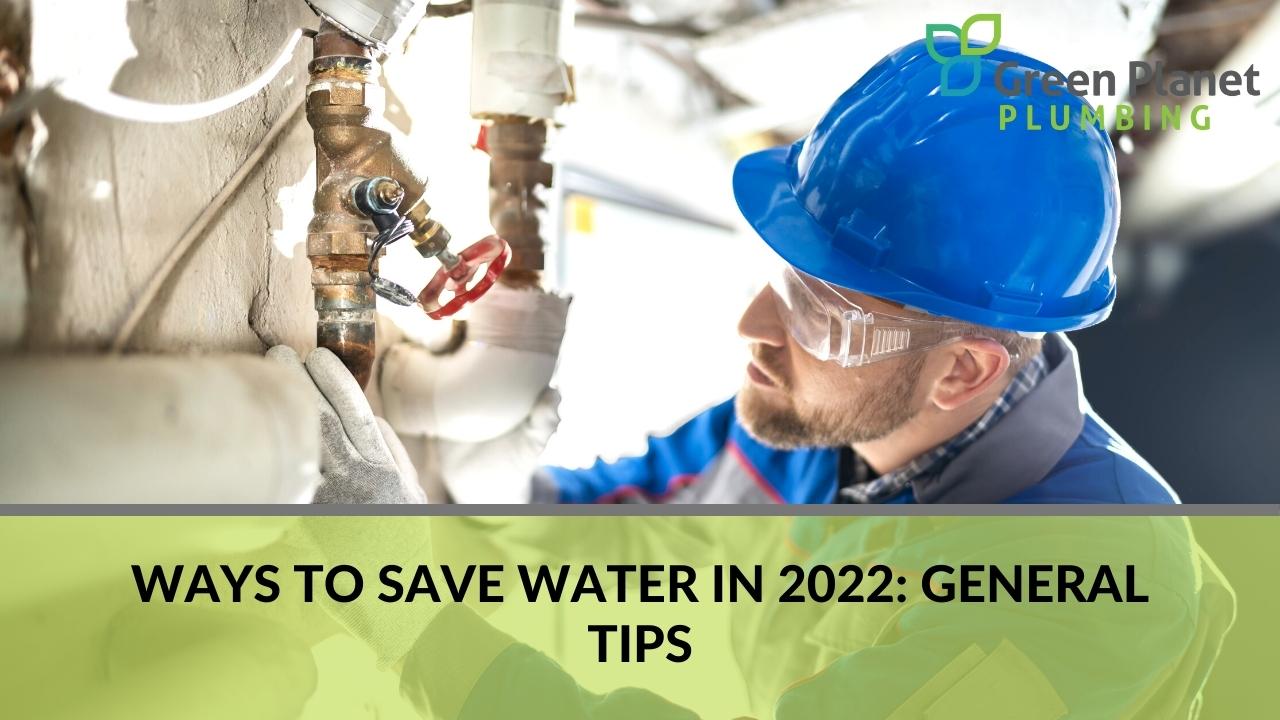
Ways to Save Water in 2022: General Tips
Some general water-saving tips are applicable in pretty much all parts of the house. These include the following:
Turn off the taps
This piece of advice never gets old: Always turn off the taps when not in use. This is possibly the simplest but most impactful water-saving solution that we can give.
Install a smart tap
Ever left a tap on overnight? Not a problem with smart taps, because they have built-in sensors that detect if the tap is needed or not. Most models are simply detachable nozzles that connect to the spout. For example, have you ever noticed the amount of water wasted if the tap runs while brushing teeth or lathering soap? Since smart taps automatically turn off in between uses, wastage is minimised.
Check everything for leaks
Leaks are particularly problematic since they can potentially waste a lot of water. Even minor leaks can consume litres of water in one day: Just imagine how much water flows out of a large leak. It’s important to check for the presence of leaks. Some common signs to watch out for include:
- Water stains or discolouration in the surrounding area.
- Dripping taps, bidets, and showers.
- Low water pressure or a sputtering outflow.
- Ad odours close to areas with pipes and drains.
- Dripping sounds.
- Rust, corrosion, or damage to metallic objects and pipes.
As soon as a leak is spotted, the wisest choice is to patch it up while calling for local, professional plumbing services. Temporary fixes are ok, but seeing a professional plumber is still best to rule out any further damage.
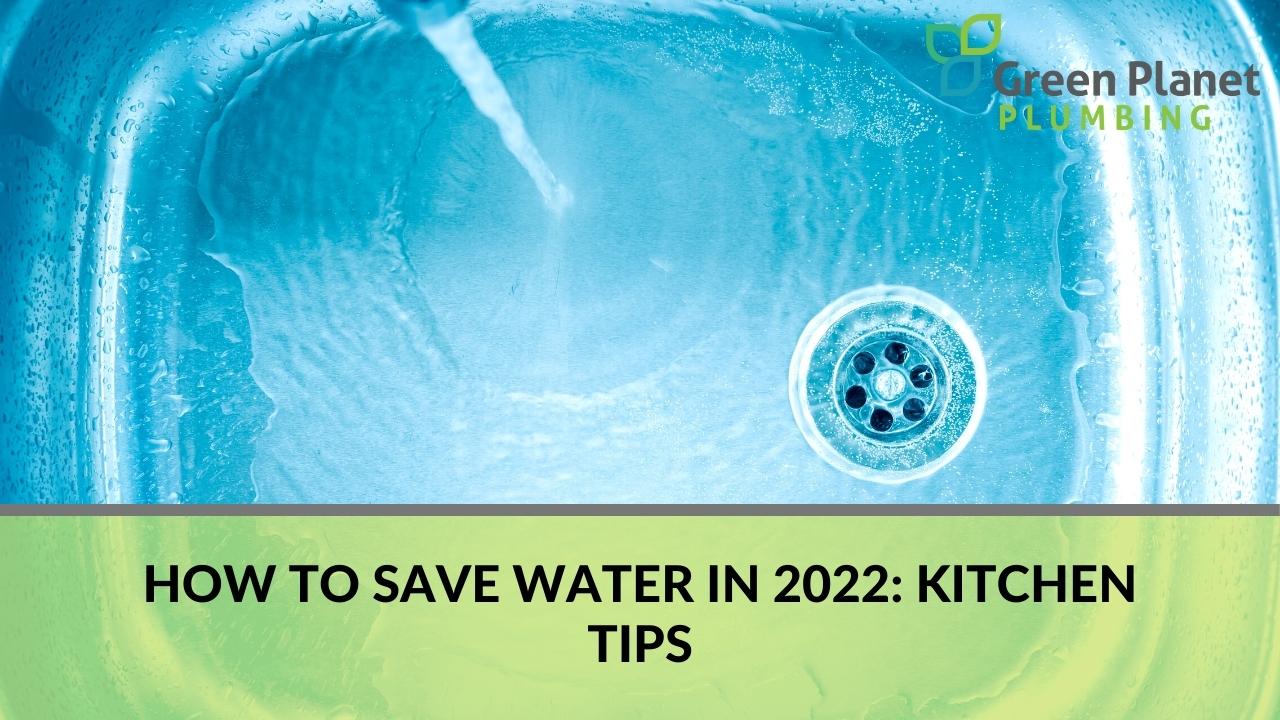
How to Save Water in 2022: Kitchen Tips
Here are some of the best ways of conserving water in the kitchen:
Strategise dishwasher use
Dishwashers save a lot of time but are quite wasteful when used below full capacity, so it’s better to make sure to load the dishwasher over half before use. This doesn’t necessarily mean that the dishes need to pile up before washing, that’s just unhygienic, but why not just use the dishwasher when there are piles to wash? If it’s just a plate or two, washing them by hand is the best way of conserving water. It might feel inconvenient – saving water comes with sacrifices – but don’t worry, it will all pay off in the long run.
Hand wash dishes in phases
Hand washing dishes is also wasteful when done improperly. To minimise water loss, do the following:
- Start by running all the dishes briefly under the tap.
- Scrub everything with a sponge and dishwashing fluid. Keep the tap off!
- Rinse everything afterwards.
Clean the waste disposal unit regularly
Leaving the waste disposal unit uncleaned for extended periods may cause sinks to clog. Clogged sinks can lead to a whole host of other issues that will take precious water to resolve. Prevent this problem from occurring by regularly cleaning the sink’s waste disposal unit.
Use a water bottle to rehydrate
Many people tend to wash their glasses and cups immediately after drinking. This may not seem like much but imagine everyone in the entire household doing this for an entire year. That’s a lot of water wasted.
Instead of this, have everyone in the household use their own dedicated reusable water bottles to drink from. One water bottle per person for the entire day, washed when the day ends. It would save a lot of water in the long run.
Don’t defrost under the tap
Some people defrost food by placing them under a running tap. This is wasteful – only do this when a quick defrost is required.
Reduce food wastage
This is an indirect way to conserve water in the kitchen, but food waste is a real problem that leads to water loss – growing and producing food uses up water, and it takes about 2,600 gigalitres to grow food in Australia on average. That means any food wasted also wastes the water used to produce it.
There are many methods to help lessen food waste. These include:
- Only cooking what is necessary.
- Buying just the right amount of food to prevent spoilage.
- Composting inedible organic matter.
- Using leftover food.
Reducing food waste not only conserves water, it does wonders for the environment as well.
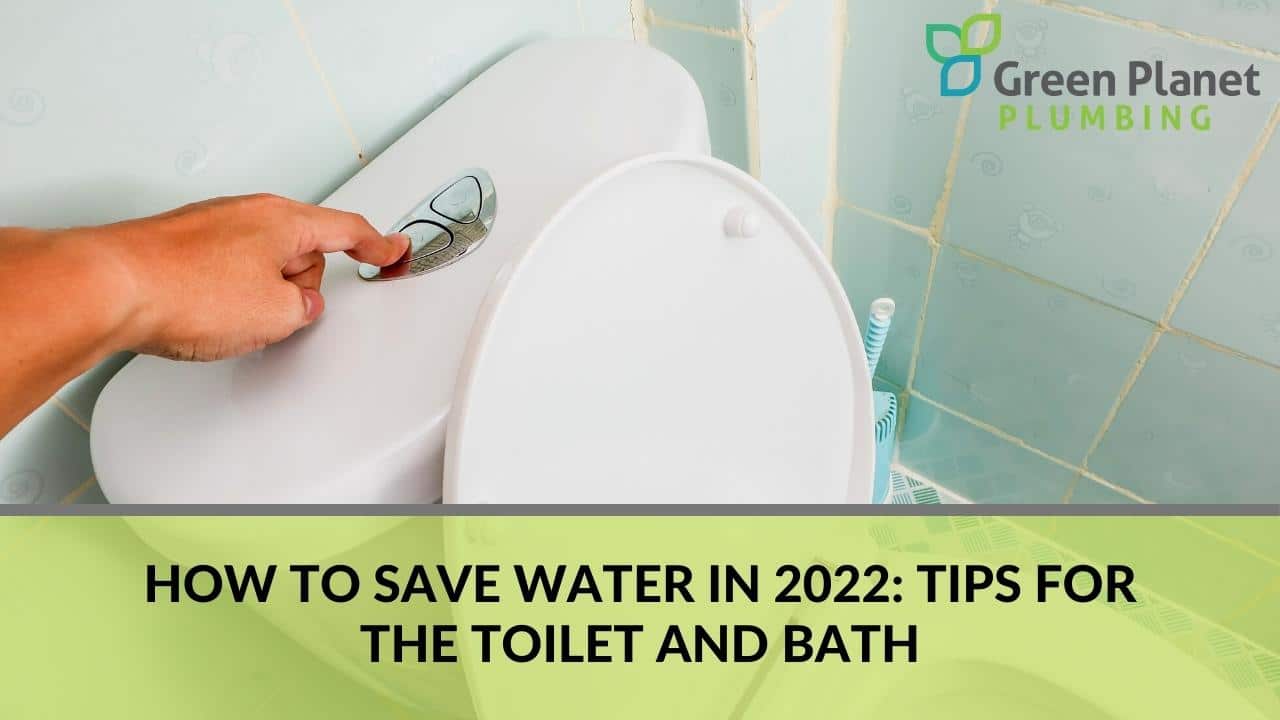
How to Save Water in 2022: Tips for the Toilet and Bath
Many water-saving solutions are also doable in the toilet and bath. Some of the best ones are as follows:
Get a water-saving toilet
Older toilets use around 11 litres per flush; that’s a lot of water wasted. To scale, an average person needs to drink at least 2 litres of water a day. Just imagine the amount of clean water that could have been used for other purposes. A great way to conserve water involves using water-saving toilets. For instance, dual flush toilets only use up to 5 litres for a full flush and even less for a half flush.
If you are unsure about the toilet model at home, measure the tank capacity of the toilet. Replace it ASAP if it’s still one of the 11-litre tanks. If still in doubt, ask a professional plumbing service like Green Planet Plumbing who puts the environment at the forefront of their business.
Modify the toilet using a plastic bottle
This trick can help older toilet models use up less water. Simply fill up a disposable water bottle and place it inside the toilet’s tank. This will prevent the toilet from using up too much water when flushing.
This is usable as a long-term solution for older toilets. However, note that replacing this with a newer and more water-friendly model is still safer.
Do not use the toilet as a rubbish bin
Some people use toilets as rubbish bins, but what these people don’t know is that flushing down waste items like toilet paper uses up more water. That is not to mention the possibility of clogging.
To lessen the temptation to flush rubbish down, make sure there is always a bin inside the bathroom. Also, make it a point to remind everyone at home that the flush is only for human waste.
Set a limit on baths
There’s nothing more satisfying than taking a long shower after a particularly tiring day. Sadly, unnecessarily long showers are among the most wasteful practices when water conservation is concerned.
Don’t shower longer than is necessary. Once you feel clean enough, step out of the shower to avoid wasting any more water. What could also help is to set an alarm that sets off as a reminder that the shower has been long enough. 4 minutes is the recommended shower time.
Install a flow restrictor shower head
Flow restrictors limit the amount of water that comes out of the shower. Some models can save up to 5 litres of water or more every minute.
The biggest drawback of using a flow restrictor is that the pressure of the water flowing out isn’t as strong. This is off-putting for some, so consider whether this or limiting bath times is the better option. But again, it’s all a matter of personal preference.
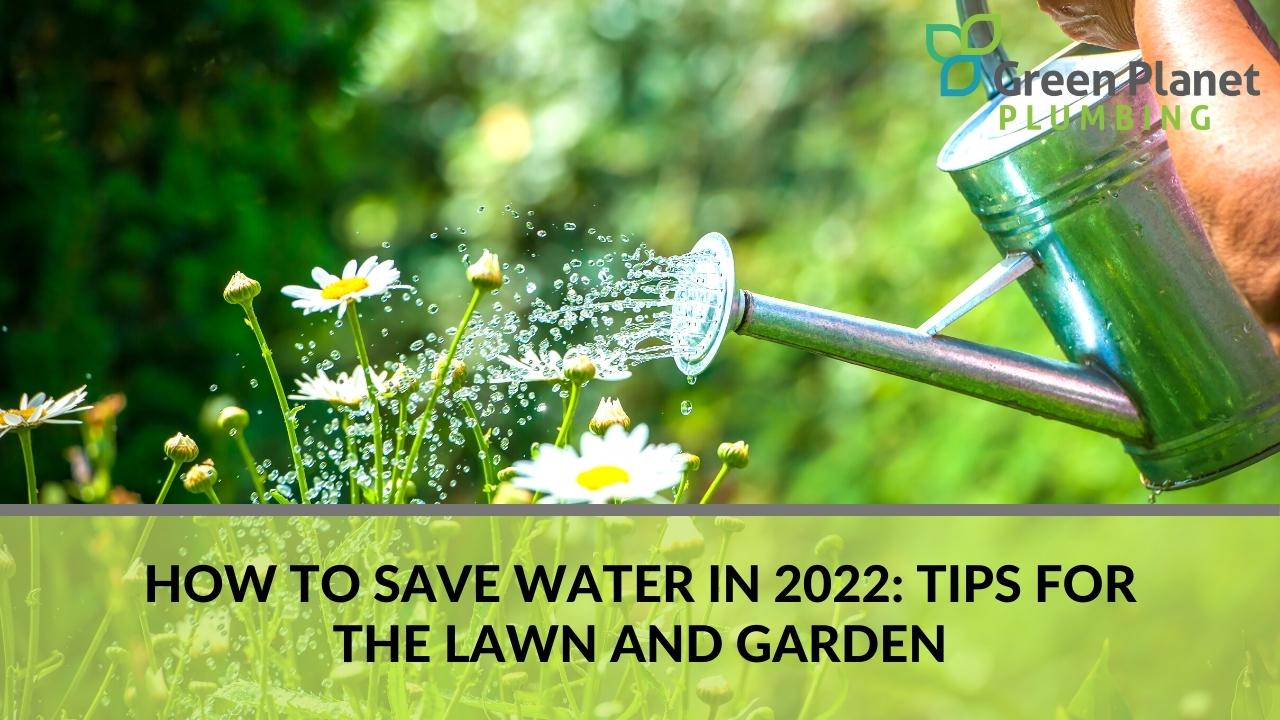
How to Save Water in 2022: Tips for the Lawn and Garden
Many of us underestimate the amount of water saved by using proper gardening practices. Some of these practices include:
Water the plants early in the morning
It’s best to water the plants during the cooler times of the day. Early morning is the best time since water won’t evaporate as quickly compared to the middle of the day. This gives plants the maximum amount of water with little wastage.
Do a deep soak
Watering a garden or lawn deeply is another way of maximising water use while minimising loss. What does it mean to water deeply? This is synonymous with doing a deep soak, which involves ensuring that water penetrates at least 20cm beneath the ground. This ensures that the plants can absorb as much water as they can while evaporation is at a minimum. Doing a deep soak also means that the plants would not need watering as often.
Reuse rainwater
Water used for gardening need not be potable. As such, many homeowners turn to rainwater as an alternative water source for their plants.
Rainwater collection tanks, for example, can store water for later use in gardening or toilet use. Households that want more choices with the rainwater they collect, on the other hand, can invest in rainwater purifiers. Consult trusted plumbing contractor, Green Planet Plumbing, to find out more
Strategically position lawn sprinklers
Sometimes, the initial positioning of lawn sprinklers needs a bit of adjustment. This is especially important as time goes by and the plants start spreading to different areas. To maximise water usage and minimise wastage, make sure to reposition these sprinklers as needed.
Mulch
Mulch is for boosting plant growth and it is also an excellent method to conserve water. Applying mulch in the garden helps soil retain water for much longer. This effectively lessens the number of times that the garden needs watering.
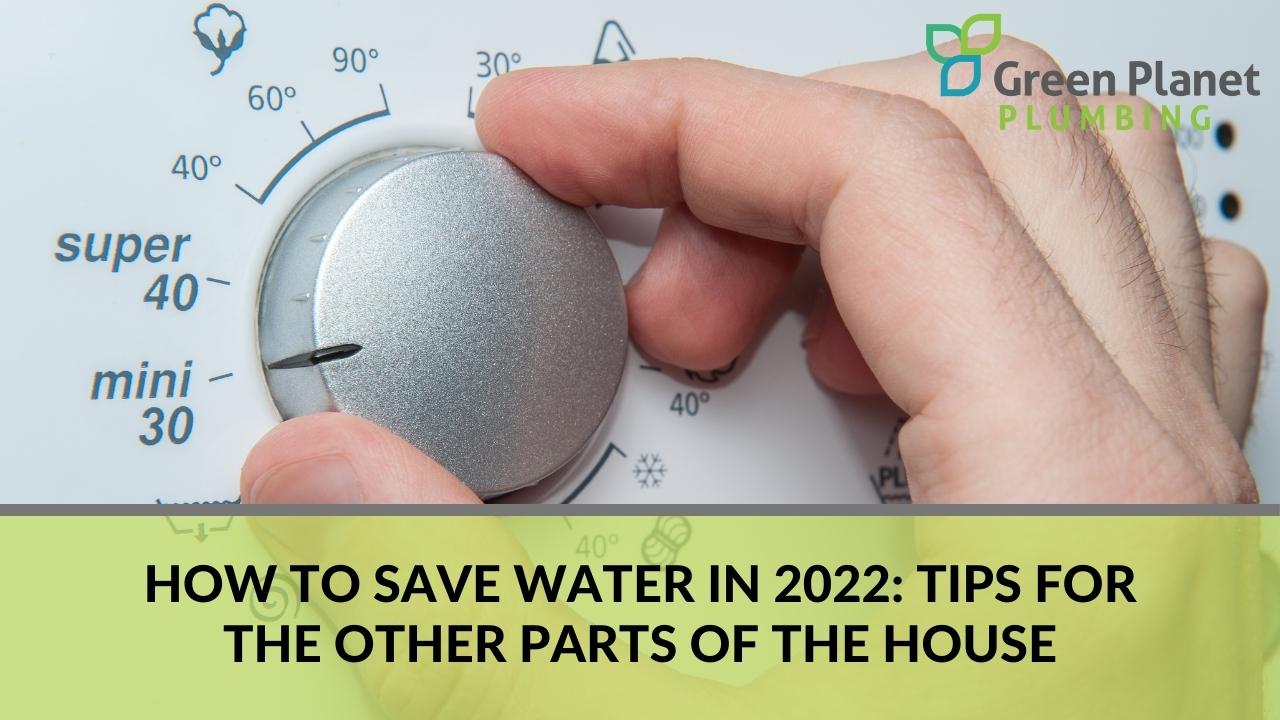
How to Save Water in 2022: Tips for the Other Parts of the House
It’s not just the kitchen, toilet, bath, and garden that use up water. Other parts of the house surprisingly use up a lot of water, too. Here are some tips to conserve water in the laundry, garage, and the rest of the home:
Get a water-saving washing machine
Washing machines are among the most water-demanding appliances found in homes. In fact, it’s estimated that about 13% of water use in households is because of laundry.
A standard washing machine may use up to 130 litres of water in a single wash. Luckily, machines that can cut down water use by as much as two-thirds of the original use are available. Make sure to check the current washing machine and replace ASAP it if it uses up too much water.
Set a weekly laundry schedule
It helps to switch to a washing machine that uses less water, but it’s still essential to set a weekly laundry schedule. A water-saving washing machine still wastes a lot of water if used every day, after all. To address this, set a weekly laundry schedule. Allot one day for laundry to cut water wastage as much as possible.
However, note that a weekly schedule is not possible in bigger households. In these cases, try to determine the time it takes to load the washing machine at full capacity and decide from there.
Use a water-saving hose to wash the car
Many water-saving hoses are available on the market. These have lower flow rates or lesser water pressure compared to standard hoses. If needed, purchase a hose with an adjustable flow rate to alternate between water-saving and high flow modes.
Don’t waste resources
Be sure to not waste resources like electricity and paper, as producing these resources uses a lot of water. This is not a direct method of water conservation, but it’s still too important to ignore.
Do a thorough water usage check
Finally, do a regular check of all the parts of the house that use water. Damaged appliances, pipes, or fixtures can all undermine water conservation efforts. Call Green Planet Plumbing if there are any serious problems.
Green Planet Plumbing, a professional Newcastle plumbing service, can help you save water in 2022
As mentioned above, the best ways to conserve water start at home. It not only impacts the environment but also lessens the financial burden on you. That is why at Green Planet Plumbing, we ensure that we promote water conservation as much as we can.
We do this by offering immediate plumbing repair and maintenance in residential and commercial properties. We also recommend water-saving devices to our clients, that can improve their plumbing system whilst allowing them to do their part in helping the environment and slowing down climate change.
Click here to find out more about us or call us on 02 4911 9402 to set up an appointment with our experienced licensed plumbers. Alternatively, click here to send us an online message and we will contact you back as soon as we can.

